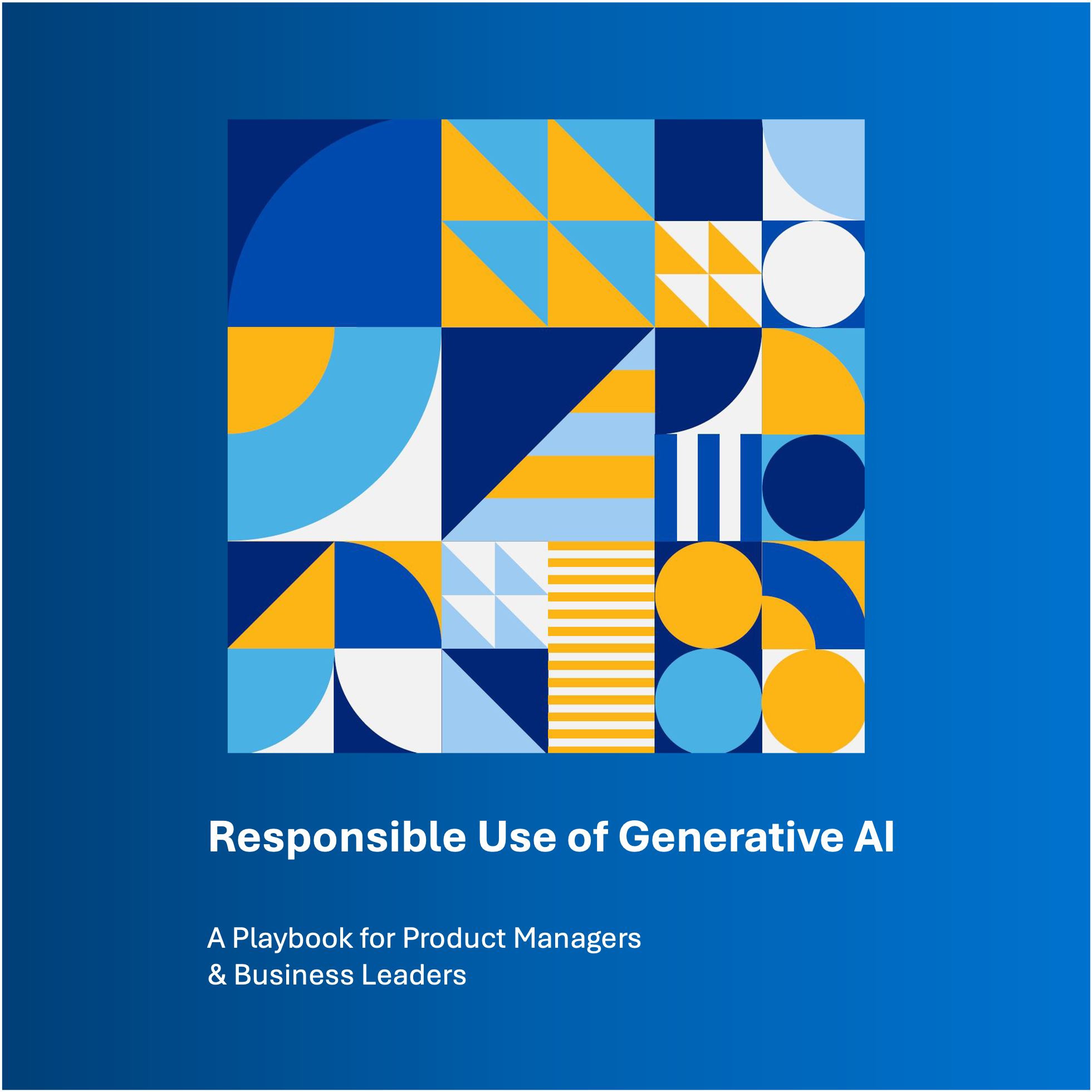Generative AI is transforming industries by enabling automation, personalisation, and enhanced decision-making. However, its rapid adoption also raises serious ethical, legal, and security concerns. A new playbook from the UC Berkeley AI Research Lab, in collaboration with Stanford University and the University of Oxford, provides a structured framework for product managers and business leaders to embed responsible AI practices into their organisations. This article delves into the key findings from the playbook, explores best practices, and offers actionable insights on how to balance innovation with responsibility.
Why Responsible Generative AI Matters
The rise of Generative AI (GenAI) in organisations has introduced unprecedented opportunities, from content creation to customer engagement. However, with great power comes significant responsibility. According to research underpinning the UC Berkeley playbook, companies that prioritise responsible AI are four times more likely to have dedicated AI responsibility teams and 2.5 times more likely to implement safeguards.
Addressing the ethical risks of GenAI is not just about compliance, it is about trust, long-term business sustainability, and competitive advantage. Companies that fail to consider AI ethics can face reputational damage, regulatory penalties, and lost consumer confidence. The playbook outlines a comprehensive approach to mitigating these risks through a structured, actionable strategy.
The Five Key Challenges in Responsible AI Adoption
The study conducted by UC Berkeley researchers identified five major challenges in ensuring responsible use of GenAI:
- Uncertainty Around Responsibility: A staggering 77% of product managers (PMs) lack clarity on what ‘responsibility’ in AI means.
- Diffusion of Responsibility: Many assume AI ethics or security teams handle risks, leading to organisational inaction.
- Lack of Incentives: Only 19% of PMs have clear incentives to adopt responsible AI, as speed-to-market pressures take priority.
- Leadership Buy-In: Companies with strong AI principles and leadership support are far more likely to have robust governance mechanisms.
- Micro-Level Ethical Actions: In the absence of formal mandates, PMs often take small, isolated actions to align AI use with ethical best practices.
Understanding these challenges is the first step toward embedding responsible AI practices at an organisational level.
The Five Key Risks in Generative AI
The playbook categorises AI-related risks into five primary areas:
- Data Privacy: AI models may retain user data, raising privacy and copyright concerns.
- Transparency: The ‘black box’ nature of AI makes it difficult to understand decision-making processes.
- Inaccuracy & Hallucinations: AI-generated content can be factually incorrect or misleading.
- Bias: AI models may reinforce societal biases, leading to unfair or discriminatory outcomes.
- Security Vulnerabilities: AI systems can be exploited through adversarial attacks and prompt injections.
To combat these risks, the playbook recommends a dual-layered approach, focusing on organisational leadership and practical implementation by product managers.
10 Actionable Plays for Responsible AI
The playbook presents 10 structured plays, divided into two categories: five organisational leadership plays and five product manager plays. These serve as a roadmap for integrating responsible AI principles into both strategic governance and daily operations.
Organisational Leadership Plays
- Leadership Commitment: Ensure leadership recognises the importance of AI responsibility and communicates its commitment across the organisation.
- AI Policies & Standards: Develop clear policies and enforce standards for responsible AI use.
- AI Governance Framework: Establish governance structures, define roles, and promote shared accountability.
- Align Incentives: Update incentives to reward responsible AI practices.
- Training & Education: Provide tailored training to bridge knowledge gaps and build AI literacy.
Product Manager Plays
- Gut Checks: Evaluate responsibility risks in AI-driven product development.
- Model Selection: Choose AI models based on transparency, fairness, and ethical considerations.
- Risk Assessments: Conduct cross-functional audits to identify and mitigate potential risks.
- Adversarial Testing: Implement red-teaming exercises to uncover vulnerabilities.
- Tracking Ethical Actions: Document responsible AI decisions and showcase them in performance reviews.
Implementing the Playbook: A Business Imperative
For businesses looking to implement the recommendations from the UC Berkeley playbook, here are key takeaways:
- Embed AI Responsibility into Product Design: Rather than treating AI responsibility as an afterthought, it must be part of the initial design and development stages.
- Develop Cross-Functional AI Ethics Teams: Ensuring alignment across product, legal, and security teams can significantly reduce risks.
- Leverage AI Auditing Tools: Tools like IBM’s watsonx and NIST’s AI Risk Management Framework can provide structured governance mechanisms.
- Educate Teams & Foster a Culture of Responsibility: Continuous education on AI risks and ethical best practices is crucial for long-term sustainability.
- Monitor & Iterate AI Governance Strategies: AI is evolving rapidly, and governance frameworks must be updated regularly to address emerging risks.
The UC Berkeley playbook provides an invaluable roadmap for organisations seeking to harness the power of Generative AI while mitigating its risks. By implementing structured responsibility plays, businesses can not only ensure ethical AI use but also gain a strategic advantage in an increasingly AI-driven world.
Responsible AI is no longer optional, it is an essential pillar of long-term success. Organisations that act now will be better positioned to navigate regulatory changes, protect their brand reputation, and build trust with customers and stakeholders.
How BI Group Can Help
At BI Group, we specialise in Responsible AI governance, AI risk assessment, and compliance frameworks that help organisations implement ethical and transparent AI systems. Our expertise in AI ethics, security, and regulatory compliance ensures that businesses can navigate the challenges of AI adoption while maintaining trust and accountability.
We offer tailored AI governance frameworks, AI auditing services, red-teaming exercises, and employee training to embed responsible AI into your organisation’s core strategy.
If your organisation is looking to strengthen its AI responsibility initiatives, contact us today to explore how we can support your journey toward ethical and sustainable AI.
To access the full UC Berkeley Playbook, visit: Responsible Use of Generative AI Playbook.

